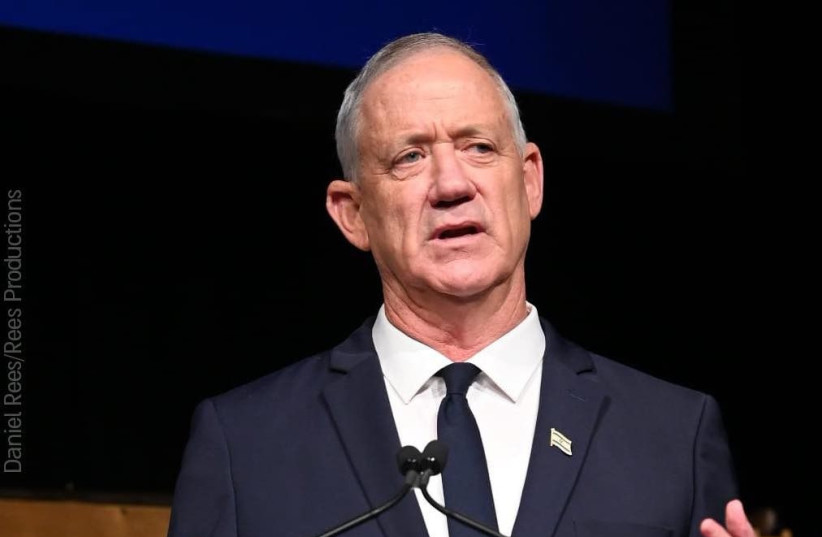‘In Be’eri, I have established the New Zionism Party,” a new Israeli leader may announce in an historic (but currently imaginary speech) in a few months. In the audience, tens of aspiring new leaders stood on the grounds of a kibbutz which became a battlefield for two days, where many were killed and others were kidnapped. The winter air still smells of smoke; many of the houses are still in a state of destruction.
It is from the ashes, literal and metaphoric, of this now historic kibbutz that Israel can enter a new era.
It’s time for the Israeli political system to reboot, reset, and rebuild from scratch. Israelis are sick and tired of its politicians. Israelis want a new attitude toward politics, and many of them would like a big-bang-type effect to influence the variety and groups of our 120 members of Knesset today.
On October 6, Israel was on the verge of a civil war, or at least an uprising by a large portion of society. Religious people felt uncomfortable walking through Tel Aviv, and secular Israelis felt anxious when visiting Jerusalem. There was hate in the air, hate in the media, and hate on social media.
Unfortunately, it took a fatal attack and then a war for us to set the differences aside and reunite, as a people and as a nation. The number of new non-profits that were created since October 7 is unbelievable, as well as legacy organizations that reinvented themselves as a result of this tragedy. The influence has been seen in every part of Israeli society, but there is one big question that remains unanswered: How will this mega-event influence the Israeli political system?
At the moment, Benny Gantz, chairman of the National Unity Party, has been dominating the weekly polls, while Prime Minister Benjamin Netanyahu’s Likud has been cut in half, electorally. But this trend may just be an illusion. Though Gantz is considered a positive and responsible figure of the political center, he may be receiving all of this support just because there aren’t any other alternatives. At the end of the day, he is considered by many to be a bit parve; lacking a real ideological path or vision

Behind the scenes, many aspiring politicians, as well as former politicians, are trying to form new political entities to compete for this center, or center-right vote. Former politicians such as Naftali Bennett or Yoaz Hendel, as well as Ayelet Shaked, former Mossad chief Yossi Cohen, and even former Shin Bet chief Yoram Cohen, are looking at potentially leading or joining one of these groups.
But maybe these aspiring leaders should think out of out-of-the-box. No more right-wing or left-wing branding, but focusing on what unites most of us Israelis: Zionism.
What if a group of Israeli leaders, from across the political spectrum, got together and focused on promoting core Zionist values? What if this group would include the moderate voices from all sectors of the Israeli society?
This new party could consist of secular Israelis, who understand that Judaism isn’t something that belongs only to religious people, but actually to all Jews. It should include Religious Zionists who understand that their representatives in the past Knesset were too harsh and extreme in trying to promote their values while ignoring a large part of Israeli society.
This party should reach out to modern or even mainstream Haredi communities, which have gone through tremendous changes in the past few months. These haredim can demonstrate their new interest in fully integrating into Israeli society. This party should include Druze and Bedouin leaders, who have been overwhelmingly crucial in Israel’s war on Hamas. It should include members of the Kibbutz Movement, most of whom have been affiliated with left-wing parties and who have become more conservative after October 7, with regard to security.
Other constituents can be found from the 15 mandates of classic Likud voters who have felt that this party has been disenchanted by the current leadership.
One model can be learned from the current French President Emmanuel Macron. His Renaissance (RE) Party centrist and liberal. Founded in 2016 by Macron, a former minister of the Economy, Industry, and Digital Affairs, he became president in 2017. The party, which won a majority in the National Assembly in 2017, advocates for pro-European, progressive policies, uniting both Left and Right ideologies, and aims to modernize French politics. RE is characterized by its openness to members from various political backgrounds and its affiliation with the Renew Europe group in the European Parliament since June 2019.
The party’s early stages involved extensive grassroots efforts, including door-to-door surveys to shape its initial campaign platform. Macron was previously a member of the Socialist Party, but decided to create his new platform after winning his second term.
Yair Lapid, now opposition chairman, attempted to create a centrist party in 2012, with representatives from various groups in Israeli society, most of whom weren’t politicians, at least not on the national level.
There are pros and cons to creating a party comprised of people who aren’t politicians: On the one hand, they bring a new and refreshing spirit, while challenging the existing old-school ministries and Knesset committees. But the downside of this type of party is that these fresh politicians need a few years to learn the ins and outs of the complex Israeli political system, while many times missing out on opportunities or dramatic votes.
Israel’s political system is in desperate need of repair. A carefully constructed centrist-Zionist party may be the key to giving the Israeli public exactly what it needs: a refreshing new start.
